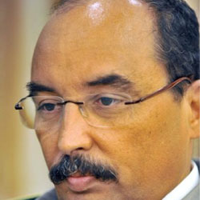On Feb. 2, a car exploded 12 miles outside Nouakchott, the capital of Mauritania, killing three suspected terrorists and wounding several soldiers. Mauritanian security forces identified the terrorists' intended target as the French embassy in Nouakchott, a claim repeated by a man arrested in the operation. However, in the aftermath of the attack, al-Qaida in the Islamic Maghreb (AQIM) released a statement, claiming the real target had been the president of the Islamic Republic of Mauritania, Mohamed Ould Abdelaziz. A few days later, AQIM released another statement to a state news agency threatening additional attempts on the president's life. The group accused Abdelaziz of being a French proxy in its war against Islamic militants and called for the army to overthrow him.
Mauritania's growing security and governance challenges come at a time of serious turmoil across the region. The overthrows of Presidents Zine El Abidine Ben Ali in Tunisia and Hosni Mubarak in Egypt seem to portend an era of major change in the region, with protests now spreading all over the Middle East and North Africa -- in Yemen, Jordan, Algeria, Bahrain, Iran and Libya.
It is understandable for observers to wonder who will be the next Arab despot to fall, even if not all are likely candidates. For a variety of reasons, Mauritania is surely among the countries in which the situation could become critical.

